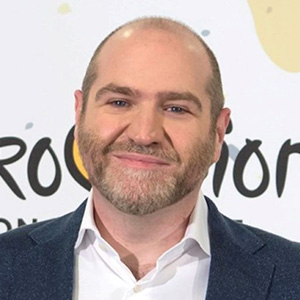World Press Freedom Day: Swedish Radio DG argues police need better tools to protect journalists
03 mai 2018
On the occasion of the 25th anniversary of World Press Freedom Day, EBU Executive Board Member and Swedish Radio DG Cilla Benkö argues that lawmakers should empower the police to better protect journalists.
"A little less than a year ago, Sweden’s leading media companies agreed on a joint Declaration of Intent concerning travel to high-risk areas. With this Declaration, a common position for the industry was achieved, with the ultimate goal of strengthening security for Swedish journalists working abroad.
World Press Freedom Day was proclaimed by the UN General Assembly to draw attention to the sacrifices made around the world for freedom of the press and, by extension, democracy. World Press Freedom Day also serves as a reminder to governments of their obligations to uphold freedom of opinion and expression pursuant to Article 19 of the Universal Declaration of Human Rights. Unfortunately, this is not self-evident. The 2018 World Press Freedom Index published in recent days shows a very unpleasant and rising trend of politicians openly attacking the media – not just in authoritarian states but also in democracies.
Journalists, editors and publishers are being harassed, attacked, imprisoned and even murdered. According to UNESCO, 76 journalists were killed during 2017. On the one hand, this is the lowest figure in 14 years, but on the other hand, one reason for this reduction is that journalists are avoiding the most dangerous areas and foreign correspondents are being called home. Those reporters that, irrespective of these threats, report from the most dangerous corners of the world are under also under threat. The attacks in Afghanistan a few days ago is a terrible reminder. The disgusting attacks that killed at least 26 people, many of them children, were probably also aimed at reporters. A second bomb appears to have targeted the reporters that went to report on the first bomb. Representatives from both local Afghani media and reporters from AFP and the BBC were amongst those killed.
In Sweden this is not the situation, but even here the legal rights of journalists need to be strengthened. In particular, it would be helpful if politicians, within their spheres of responsibility, publicly condemned violence towards and attacks on journalists more frequently and more plainly. Because it is the task of politicians to ensure that we have well-functioning criminal investigation and judicial systems to deal with intimidation and hate crimes as crimes against democracy; and in particular to invest the resources required for the police force to be able to effectively investigate and prosecute crimes against journalists.
Sweden’s current work environment legislation identifies the employer obligations that we as an industry must comply with. But Sweden’s media companies are not able to cope with this set of problems alone without support. Swedish Radio works proactively in this area by providing training in safety and violence prevention and threat management, and has fully incorporated security measures into its activities. When an incident occurs despite these measures, our employees know that the crimes perpetrated against them will be taken seriously and pursued as an attack on democracy, which is in fact what such crimes are about.
On this occasion it would be a good idea for us to discuss taking joint action on security for journalists at the national level, just as we have done regarding foreign travel. We are in an election year, and our employees must be able to do their jobs without fear of intimidation and hate crimes.
Six out of 10 Swedish journalists say that they have been subjected to harassment, intimidation or violence in connection with doing their jobs. Worst affected are journalists working in radio, television and the news press according to a survey by JMG of members of the Swedish Union of Journalists.
Threats to Swedish journalists by extension mean threats to Swedish democracy. Independent media and freedom of the press are the backbone of democracy. We uphold freedom of opinion and expression, hold those in power to account, and help citizens to stay informed.
While media companies already work with preventive measures, they are still forced to be reactive. We are keen to promote even better cooperation within the industry on journalist safety training, safety and security procedures, and exchanges of experience. Swedish Radio already shares its training courses and knowledge in a variety of ways and we are happy to deepen this kind of cooperation. We are also keen to join others in discussing how investigations of crimes where journalists are particularly targeted can be prioritised. We want to shoulder our share of the responsibility.
The Swedish Government has previously announced that it wants to invest in journalists’ safety and security. For the sake of democracy. This is a laudable ambition. The Swedish Police must be given better tools to act forcefully in relation to crimes against journalists’ role as defenders of democracy. Otherwise we risk a situation where fear and self-censorship causes journalists to avoid publishing anything that might lead to intimidation, hate crimes and violence. We cannot have such a situation. Swedish journalists must feel secure in knowing that these crimes will be taken seriously by their employers, by the Swedish Police and by legislators."
Liens et documents pertinents
Contact

Dave Goodman
Attaché de communication – Concours Eurovision de la Chanson et Événements en direct


